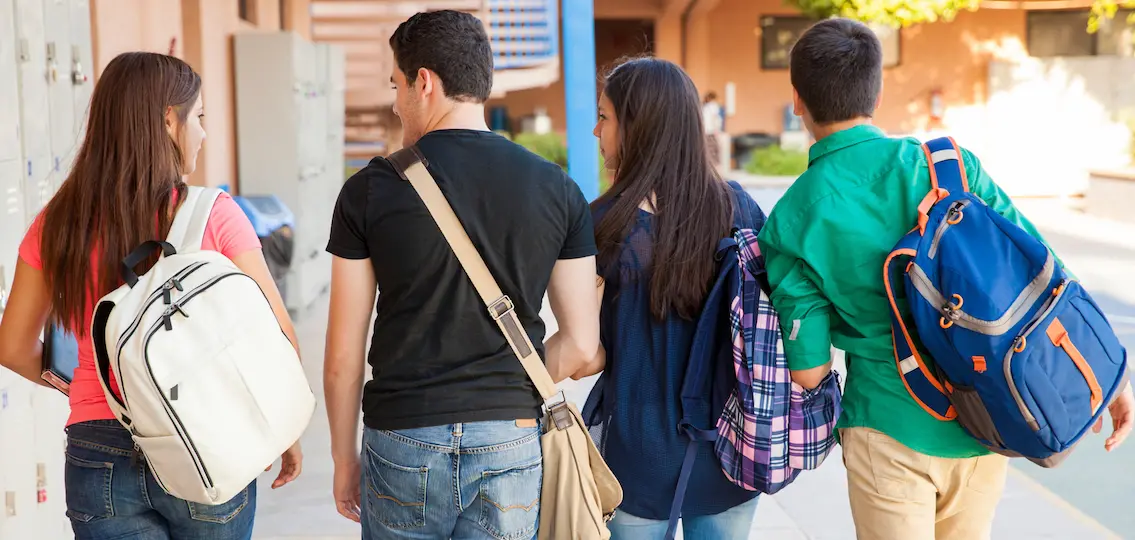As summer wound down and the first day of school approached, Jane’s daughter grew increasingly apprehensive. “She worried because her lunch period was going to be different from that of her core group of friends and she feared she’d end up eating alone,” says Jane about her daughter’s back-to-school anxiety. “I tried reassuring her that of course she’ll find friends to sit with, but she asks me to ‘please stop’ and shuts down.”

The return of the school year can trigger all kinds of school anxiety symptoms, from mild social anxiety to more extreme anxiety from bullying. Of course, any incident of bullying should be taken seriously and brought straight to the principal or the school district’s anti-bullying coordinator. But like Jane’s daughter, many students don’t want to share what’s worrying them, so it can be hard to know how to help.
How to Reduce Back-to-School Anxiety:
Here are a few steps parents can take to help ease back-to-school jitters and support a socially healthy school environment.
1. Make contact with allies on staff.
“If parents are worried about bullying, I encourage them to make connections with teachers and school counselors early in the year,” says counselor Angela Medellin, LPC-S, co-owner of Mind Works Clinical and Counseling Psychology in San Antonio, Texas. “Helping your teen connect with their school counselor is a proactive way to support them.”
2. Help them find an after-school activity.
Finding an extracurricular activity outside of school can provide teens with a different or expanded social circle that eases their back-to-school anxiety. “Providing an outlet for your teen to interact with peers outside of school means they don’t have to worry about being around the same group the entire day,” says Medellin.
3. Read other teens’ stories.

“Hate knows no boundaries, and people are victimized for all different reasons,” says Dahlia Fisher, the museum’s director of external relations. “In the past few years we’ve seen an uptick in bullying and hate-fueled interactions, and not just between young people.” Acknowledging this as a broader societal problem can help your teen feel less isolated and may encourage them to open up about their own experience.
4. Encourage your kid to be an upstander.
It’s natural to want to protect our kids from drama or difficulty. But a safe, respectful school culture depends on the efforts of everyone. “No one in life does it alone,” says Fisher. “We might start alone in our experiences, but the moment that someone helps you is the moment that changes the culture.” Fisher says it’s critical to ask kids: “Do you want to stand by, or do you want to stand up?”
Explain that being an upstander means talking to a trusted adult when you witness bullying and being kind to a kid who’s being bullied or excluded. That might include inviting them to sit with you at lunch, hanging out with them, or asking about their day. (For more ideas on how to stop bullying, visit stopbullying.gov.)

5. Role-play at home.
“Talking about social justice is a way to educate children about what they can do, should they see someone get bullied,” says Medellin. “Parents can role-play a scenario and then talk about how to problem solve, which can include notifying a teacher or an adult about the situation.” It’s a lesson everyone, kids and grownups included, can benefit from hearing, again and again.




